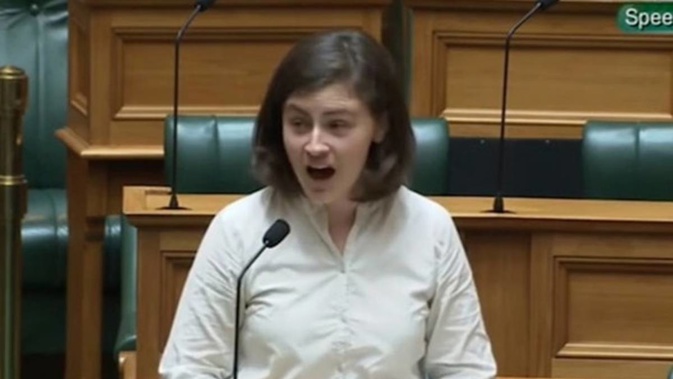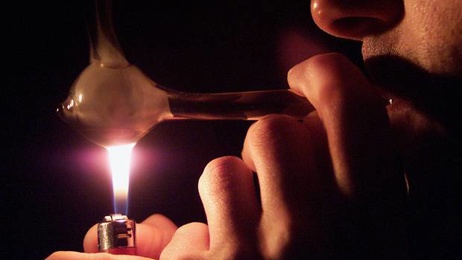
Chloe Swarbrick: “We spend far too much time, especially in the media, talking about political parties and political party leaders”.
This was an early quote from Swarbrick's Q+A interview with Jack Tame on Sunday. It likely strikes you as an odd thing to say for someone running to be leader of a political party.
As Tame, at his “give them just enough rope” best, was to find to his seeming bemusement, it was only going to get worse from there for Swarbrick.
How did she get here? It seems like only yesterday she was the scrappy underdog running an impressively strong campaign to be Auckland’s youngest mayor.
She was courted by Labour and the Greens, and chose the Greens based on the better fit in terms of ideology and youthful energy.
While some inside the Greens held concerns about whether she was sufficiently left wing - her use of corporate-speak might have given the impression she was more of a blue-green - that soon faded, and Swarbrick fit in well with a Green Party seemingly betting it all on the youth vote.
It looked like a perfect fit. Swarbrick seemed like a political talent on a limitless ascendency.
In an interview with Tame that was more cringe-inducing than inspiring, Swarbrick showed not only that there is a ceiling to her political skills, but she’s likely hit that ceiling already.
Tame did his best to wrangle her back on track, but Swarbrick’s overuse of non-sequiturs and lines that felt cribbed from either an entry-level Politics paper or an over-fluffed document from a multinational consulting firm that charged by the amount of corporate jargon used in an hour.
She rambled about her “theory of change”, a term popular among the aforementioned consulting class but not one you hear often from someone seeking to be relatable or understood.
She talked about “culture, from a design thinking perspective”, and went on to call for a national debate - removed from politicians - to agree on a shared set of cultural values. If this sounds like tyranny of the majority or a borderline monoculture, she did nothing to dissuade this impression.
She then struggled to answer Tame's straightforward questions about her meeting with the Kadimah Jewish School in her electorate, which begged her to rethink her repeated use of the controversial phrase “from the river to the sea” when speaking of hostilities between Palestinians and Israel, as students and parents from the school perceive it to have a genocidal connotation.
Chief Human Rights commissioner Paul Hunt has also shared his concerns over the use of the phrase for similar reasons and has called on politicians to exercise restraint and avoid inflammatory language when discussing matters of international significance.
Her defence: “Palestinian and Jewish” activists she knows don't have an issue with her using the phrase. She then called people who have interpreted her use of the phrase as inciting violence - one would assume this includes the school community in her electorate - as the real “racists”.
Rather than just acknowledging straight away that “yes, concerns were raised” to her directly by her own constituents but that she respectfully disagreed with them, she chose to attack.
This was not the Chloe we had become accustomed to, someone the Greens faithful hoped would expand their support - their version of John Key or Jacinda Ardern.
Using the old trope of “reverse-racism” and calling people (who, unlike Swarbrick, have not been subject to Human Rights Commission complaints) who don't like her use of the phrase the divisive ones.
This is a common tactic among controversy-baiting politicians - Don Brash similarly stated that he couldn't be racist because “my wife is from Singapore”. The issue for Brash-then, and Swarbrick-now, is they are seeking to represent more than just the people who agree with them, but both seem to have active disdain for those who disagree with them.
Politicians can be dogmatic sometimes, even offensive, but an electorate MP dismissing an ethnic community in her electorate so coldly was shocking.
Contrasting this interview with David Seymour's far fierier, but also more informative interview highlights the lack of self-awareness shown by Swarbrick.
TVNZ1's Mata host Mihi Forbes - one of the nation’s best interviewers and arguably it’s most combative - came ready to grill the Act leader on his fiercely debated Treaty Principles Bill in detail, and Seymour came willing to defend it. There were stumbles from Seymour, it was clear that he had failed to win over Forbes or change the media narrative about his bill, but he put forward his case and viewers were left better informed of Seymour’s thinking after the interview.
It was, I think importantly, also a debate between two Māori on the topic of Te Tiriti. Swarbrick on the other hand has no lived experience as a Jewish person, and no expertise in international diplomacy. When talking to people who do have lived experience and/or expertise, including a chief human rights commissioner appointed under Jacinda Ardern, she was defiant. Almost smug.
The catastrophic interview concluded with Swarbrick promoting herself as someone who can work across the aisle and promote unity. This might be undercut by the things she says, the communities she ignores, and the sense that it is unity under her, not alongside her, that she is offering.
This is somewhat acceptable as a list MP - you are an MP thanks to your party's voters alone, you should be speaking to your base - but as the electorate Member of Parliament for one of the most diverse communities in the country, it is disturbing.
I don't believe Swarbrick actually wants Israel wiped off the map, but she did nothing to dissuade anyone who might think she does. A more seasoned, more talented politician would have turned this into an opportunity to provide her side and promote a peaceful alternative to the bloodshed. Instead, she showed herself to be a brick wall.
In this way, Chloe Swarbrick is an outlier in our national politics. She is a hardliner in a nation dominated by centrist politics, a hawk in a nation that prides itself on promoting nonviolence, and an electorate MP seemingly uninterested in the views of her electorate members.
The brilliant American sports-slash-true crime podcast Crime In Sports has a recurring joke where they point out the exact moment in the story of an athlete where the person is at their personal and professional high-water mark. It's the glorious moment that can't be topped, and it comes right before things start to fall apart.
They call it “grace”.
I believe Swarbrick has hit the “grace” moment of her political career. Now, as happened to fellow ideologue Don Brash before her, comes the downfall.
Take your Radio, Podcasts and Music with you









